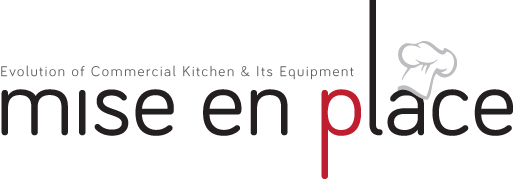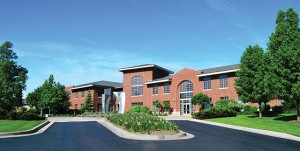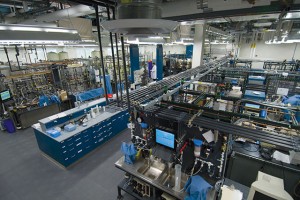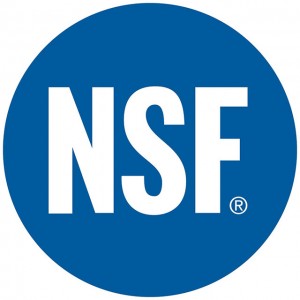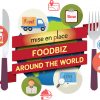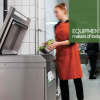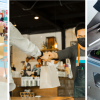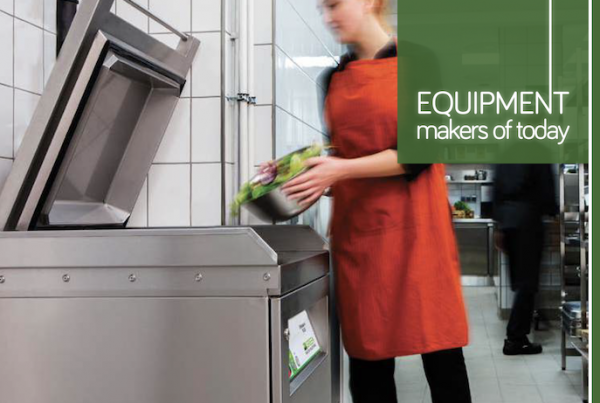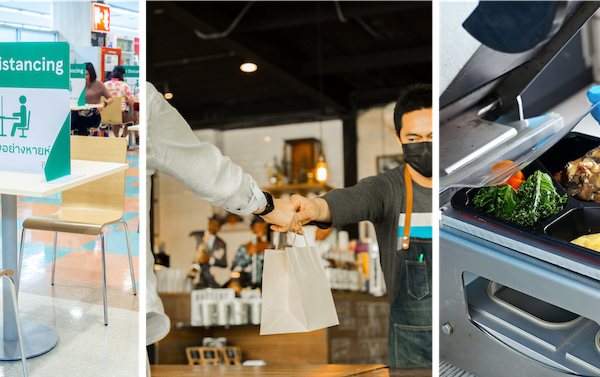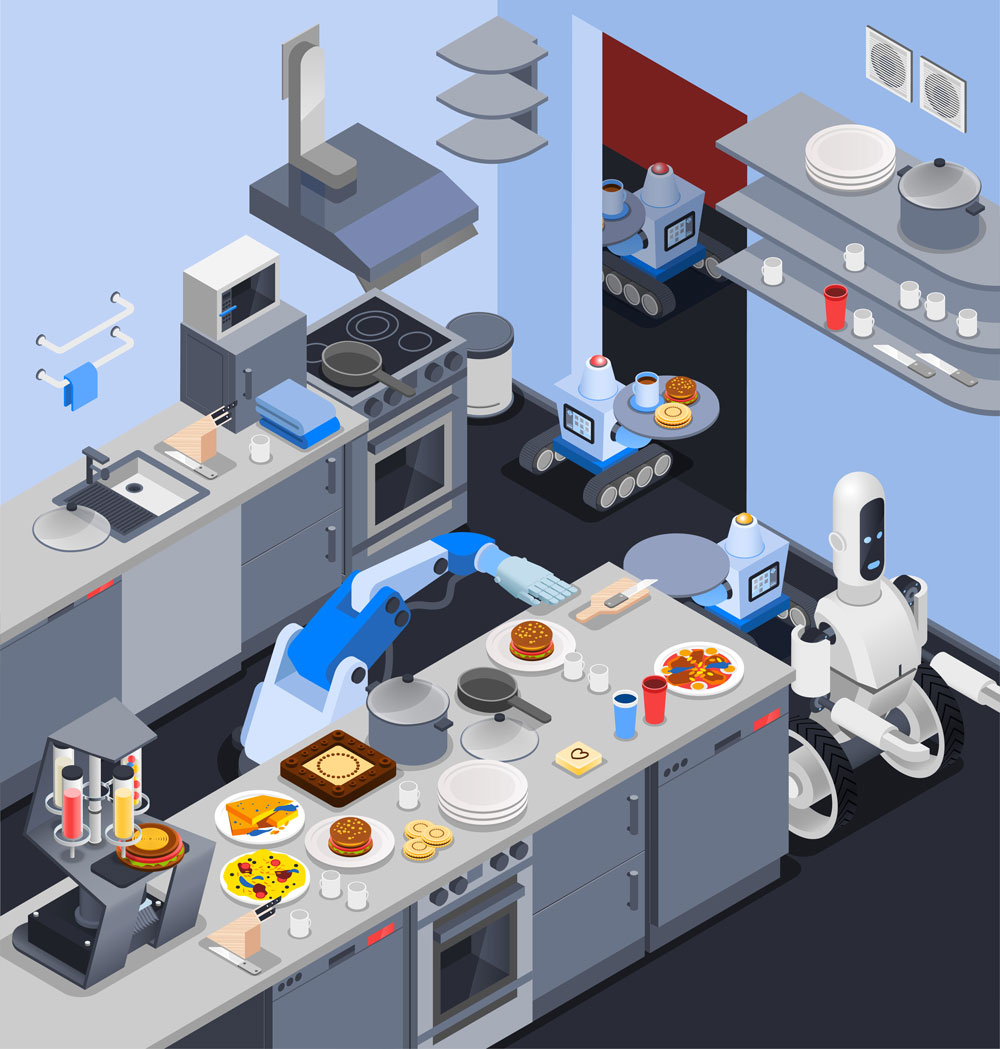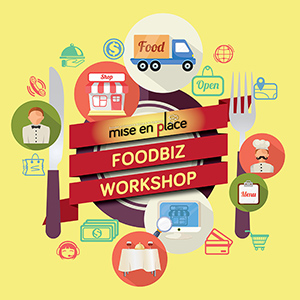Operating in an environment where food safety is nonnegotiable, foodservice operators need to make sure that how they work can instill confidence in their customers. What they use to prepare food also makes a difference and although the customers might not see it, certifications are acknowledgments for the business to survive; from the safety viewpoint. Aside from complying with the local sanitation regulations, being externally certified by a third party regulatory body like NSF International means that the equipment used in your kitchen will not give anyone a reason to doubt.
However, it is far from the picture that brought upon the founding of NSF International. In 1944, the sanitation of soda fountains and luncheonette equipment caught the attention of Walter Snyder, Henry Vaughan and Nathan Sinai and the National Sanitation Foundation was founded in the University Of Michigan School Of Public Health. Working with a transparent, consensus-based process, NSF garnered the attention of America’s public health inspectors who began requiring that products carry the certification of NSF/ANSI Standards. Using the same method, NSF has developed more than 90 public health and safety American National Standards. The awareness that NSF has brought to the industry is a positive one as it is considered virtually impossible to operate a commercial kitchen in America without NSF. Over the years, NSF led the development of more than 75 standards and protocols for sanitary food equipment which has certified thousands of machinery as safe to use in commercial kitchens. As a purchaser of equipment, having the NSF stamp on what you buy assures you that the machine meets market compliance on a global basis and that it was not manufactured with questionable materials and shoddy workmanship that might deteriorate the equipment in the long run.
ACHIEVING COMMERCIAL EQUIPMENT STANDARDS**
The NSF certification covers a range of equipment for the various purposes in a kitchen and the areas covered include materials, design, fabrication, construction and performance.
NSF/ANSI 2: FOOD EQUIPMENT
Minimum food protection and sanitation requirements for food handling and processing equipment including those for bakery, cafeteria, kitchen, pantry and components such as tables, counters and sinks.
NSF/ANSI 3: COMMERCIAL WAREWASHING EQUIPMENT
Minimum public health and sanitation requirements for commercial dishwashing machines and their related components.
NSF/ANSI 4: COMMERCIAL COOKING, RETHERMALISATION AND POWERED HOT FOOD HOLDING AND TRANSPORT EQUIPMENT
Minimum food protection and sanitation requirements for commercial cooking, rethermalisation and hot food holding and transport equipment and their related components.
NSF/ANSI 5: WATER HEATERS, HOT WATER SUPPLY BOILERS AND HEAT RECOVERY EQUIPMENT
Minimum public health and sanitation requirements for commercial water heaters, hot water supply boilers and heat recovery equipment.
NSF/ANSI 7: COMMERCIAL REFRIGERATORS AND FREEZERS
Minimum food protection and sanitation requirements for storage units, refrigerated food transport cabinets, buffet units and food preparation units; display refrigerators; beverage coolers; and ice cream cabinets.
NSF/ANSI 8: COMMERCIAL POWERED FOOD PREPARATION EQUIPMENT
Minimum food protection and sanitation requirements for equipment such as grinders, mixers, pasta makers, peelers, saws, slicers, tenderizers and others of similar functions.
NSF/ANSI 12: AUTOMATIC ICE MAKING EQUIPMENT
Minimum food protection and sanitation requirements for automatic ice making equipment and related components used in the manufacturing, processing, storing, dispensing, packaging and transportation of ice intended for human consumption.
NSF/ANSI 18: MANUAL FOOD AND BEVERAGE DISPENSING EQUIPMENT
Minimum food protection and sanitation requirements for equipment and devices that manually dispense food or beverages, in bulk or in portions, and their related components.
**The above list is only a part of NSF’s complete list of Commercial Food Equipment Standards.
For more information, visit http://www.nsf.org/ services/by-type/standards-publications/food-equipment-standards
However, the practice is still somewhat fragmented for every country has its own standard (or lack thereof in some places) of food and equipment safety criteria. To that end, NSF collaborates closely with individual governments, regulatory officials and agencies to bring positive influence to manufacturers that they may take up adopting best practices for hygienic food equipment design. Where governments lack their individual benchmark for sanitation in equipment, NSF will be the reference point for them to establish their own regulatory framework according to the food culture of its country. In line with this, NSF plans to offer more resources to support certification because operators are now more exposed and see the importance of hygienic food equipment.
According to Global Managing Director, NSF International Food Safety Product Certification, Sarah Krol, NSF is venturing into more of Asia because of the rapid expansion of QSR chains in this region that resulted in added demand for high-quality and local food equipment. Should manufacturers seek to enter certain markets where this certification is a requirement or is highly regarded, the body can facilitate product acceptance in those countries, including United States, Canada, and Europe. Through NSF, equipment manufacturers and restaurant chains will have the assurance of eliminating as many levels of risks as possible regarding sanitation and potential food-borne illness.
A NSF certification remains nothing more than a stamp on the equipment without regular follow-ups. Routine audit is carried out at manufacturing facilities where the evaluation will include design and construction of the company’s equipment, tests that confirm material safety and to determine it has not leached harmful chemicals into food and product performance test. The personnel will also drop by unannounced at certain intervals to check that compliance with certification is continuous.
Operating in more than 155 countries worldwide, the NSF team consists of about 1,700 members skilled in microbiology, toxicology, chemistry, engineering as well as experts in environment and public health. The increasing emphasis placed upon food safety, wellbeing and the growing sophistication for dining out has indeed pushed the industry forward in its way of looking upon such certifications and NSF International was on the right track. Manufacturing giants have also taken notice and some of the brands with equipment bearing the NSF mark include:
• MANITOWOC
• RATIONAL
• MEIKO
• ELECTROLUX PROFESSIONAL
• HOBART
• HALLDE
• HOSHIZAKI
• ANGELO PO
For more information on equipment safety and NSF certification, visit www.nsf.org
